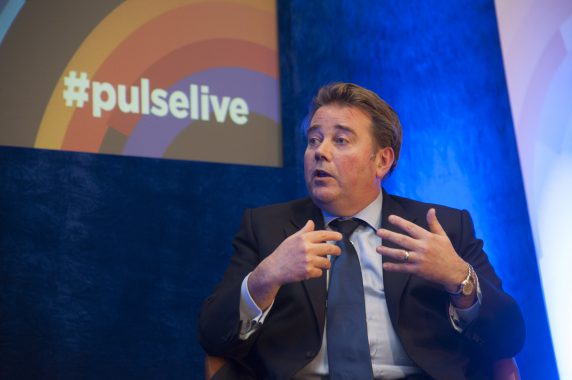GMC to spend ‘bulk of resources’ on supporting doctors

Exclusive The GMC will spend the ‘bulk of its resources’ on supporting doctors to try and reduce the number of investigations it undertakes, its chair Charlie Massey has said.
In a speech at Pulse Live in Liverpool, the GMC chair detailed the regulators’ intention as part of its ‘strategic direction and ambition’.
Mr Massey said that meant using data and insight better to identify GPs or other doctors who may be at risk of making mistakes.
The GMC had previously spent ‘pretty much half’ of their resources on the fitness to practice process, with £48m of its total £99m expenditure going on these activities in 2017.
Mr Massey said: ‘That process overall, including the resources of a practitioner tribunal service has chewed up pretty much half of the overall resource we have that we get from you our registrars. I want to move to a place where we can actually reduce those numbers and we have already been doing that.’
The news follows the regulators’ prior controversial actions in the Bawa-Garba case, in which GPs criticised the GMC for removing Dr Bawa-Garba from the medical register.
In his speech, Mr Massey gave the example of GMC investment in Welcome to UK Practice training, which identified newly registered international doctors who are ‘much more at risk of being complained about to the GMC in their first few years, not because they’re bad doctors but because the issues of transitioning into a practice.’
A GMC spokesperson said the idea to invest more in data and analytics is to ‘better understand risks to patient safety and medical education and to intervene at the earliest possible point using the full range of our levers available to us.’
Mr Massey added that the GMC held ‘a huge amount of data’ but did not have the tools to extract and analyse the data when he began his role as chair.
He said: ‘When I arrived at the GMC, I was really struck that we’d held a huge amount of data , but that we weren’t very good at extracting the insight and intelligence that we needed on that data, both at individual level so we could think about what does our data tell us about GPs or other doctors who may be at risk of making mistakes, and what does that mean we can do about it?’
Mr Massey stressed the importance of protecting training environments and trainees, as data from the GMC’s national training survey showed for a number of years the ‘huge issues in terms of the levels of commissioning trainee doctors in A+E.’
He said: ‘My reflection was this was data that was available before we got to that crisis. For me, the great success would be if we’d been able to have that conversation sooner so we’re able to be in anticipation and have an orderly plan with other bodies. We’re now able to do that, we’re able to have those joined up conversations to bring our qualitative and quantitative data.’
A GMC spokesperson said the data and independent research will ‘monitor the effectiveness and fairness of our own activities with a culture of continuous improvement.’
Earlier last month, the GMC announced it was rolling out changes where GPs who make one-off mistakes were less likely to face a full investigation.
This week, it outlined new guidance for medical schools and training providers to give more support for all disabled doctors and trainees.
The GMC is also set to publish three independently led reviews in the coming weeks, looking at gross negligence, bias of BME doctors and mental health and wellbeing.
Dr Dermot Ryan, a GP in Loughborough said: ‘I’d have to see evidence that they are moderating their stance. The first thing I would do is get rid of revalidation. There’s no evidence that it is of great benefit.’
This comes as its recent consultation proposed GPs to submit annual patient feedback instead of every five years.
Pulse October survey
Take our July 2025 survey to potentially win £1.000 worth of tokens










